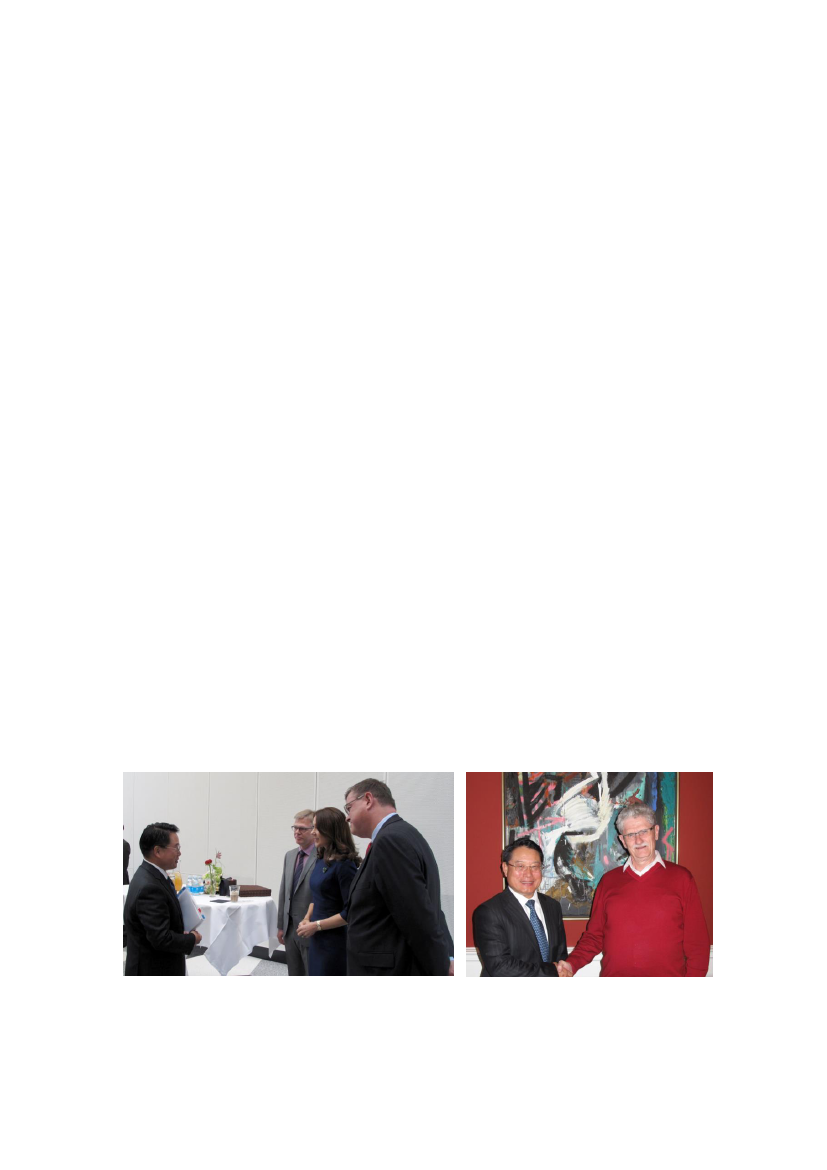
Annex 1
UNIDO Nordic Office in Copenhagen
UNIDO is already showing presence in Copenhagen with an office of the Climate Technology
Centre and Network (CTCN) (see separate fact sheet).
The management of the Organization has nevertheless taken the decision to expand its local
representation by establishing a UNIDO Nordic office in the UN City Copenhagen.
Based on initial exploratory talks in June 2014 and further to the visits of the UNIDO Director
General in October 2014 and March 2015, UNIDO is finalizing preparations for the
establishment of such an office, which is planned to be opened at the end of 2015.
The UNIDO Nordic Office is planned to contribute to promoting the interests of Danish
industries in the developing world.
Recent official visits to Denmark
Since taking office in June 2013, the UNIDO Director General has visited Denmark twice — in
October 2014 and March 2015.
Meetings with senior management of the private sector and business interest organizations included
meetings with the Confederation of Danish Industry, Danfoss, Project Zero, State of Green, Vestas
Wind Systems, or LEGO.
The Director General also met with Government representatives, such as the Minister for Trade and
Development, the Minister of Foreign Affairs, and the then Speaker of the Parliament of Denmark.
The Director General also participated in the Global Green Growth Forum 2014 where he addressed
the plenary session on “Transforming our Economic Growth paths”. He was also invited as keynote
speaker at the 8
th
Public Private Dialogue Workshop and spoke on “inclusive and sustainable
industrial development - Social and environmental challenges in a sustainable and lasting manner” in
March 2015.
At the occasion of the meeting with Her Royal Highness Crown Princess Mary, the Director General
also invited Her Royal Highness to consider becoming a UNIDO Goodwill Ambassador on Gender
Equality and Empowerment of Women.
Photo from left to right: DG LI Yong ; CEO of DI, Karsten Dybvad ; HRH Crown Princess Mary ;
Minister of Development Mogens Jensen ; Second photo: Mr. Mogens Lykketoft, Speaker of the
Parliament of Denmark and now President of the 70th Session of the UN General Assembly